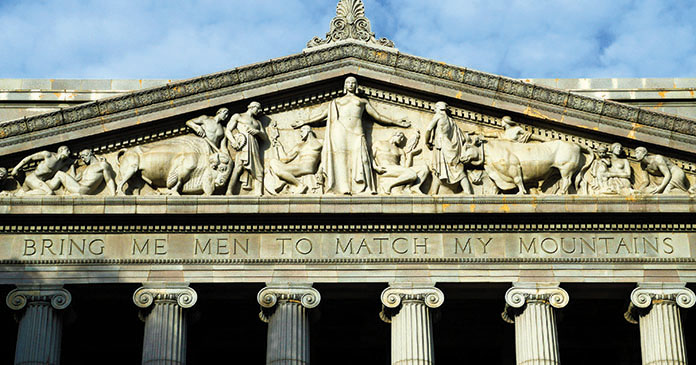
California Governor Gavin Newsom, along with leaders of the California state Assembly and Senate, reached agreement on Assembly Bill 832. This will increase the portion of unpaid rent owed by the state’s renters which the state will pay from the 80 percent called for under prior law to 100 percent.
The plan would increase the assistance available for paying prospective rent for qualifying residents from 25 percent under current law to 100 percent. The plan would also cover delinquent utility bills and would extend the state’s eviction moratorium and other related provisions by three months.
The increase in support payments is possible because of additional funding made available to the states in the $1.9 trillion American Rescue Plan Act of 2021. This plan was signed into law by President Biden in March.
In the Census Bureau’s Pulse survey from early June, about 11 percent of California adults who rent reported being behind on their rent. The 2019 American Community Survey found that there were just under 6 million renter-occupied housing units in California.
As was the case under prior law, not all California renters will qualify for assistance. In order to qualify, renters must make a declaration under penalty of perjury that they were unable to pay their rent because of hardship caused by the pandemic. Their income must generally be no higher than 80 percent of AMI. They must also have paid at least 25 percent of the back rent they owed by the expiration date of the eviction moratorium. That date had been June 30, 2021 under the previous program but now has been extended to September, 30, 2021.
Help is coming – eventually
Tom Bannon, CEO of the California Apartment Association, said in a statement, “We are disappointed that the CDC extended a nationwide eviction moratorium through July, and the state of California has extended an eviction moratorium through September. Both the federal and state eviction moratoriums would not be necessary if state and local governments were disbursing rental assistance funds to tenants and housing providers in an expedited manner.”
“It is frustrating that the state of California and numerous local governments have not quickly disbursed funds to those in need, especially to mom-and-pop rental housing providers who have not seen any rent payments, yet must still pay the mortgage, insurance, taxes, maintenance and other expenses.”
The previous rental assistance program was implemented under SB 91, which Newsom signed into law January 29, 2021. Provisions of that law required that disbursement of assistance funds start as early as February, but the aid has been slow to flow. The California Department of Housing and Community Development reported that only $32 million had been paid in assistance against $490 million in requests received through the end of May.
In announcing the agreement with the legislature, Newsom said, “California is coming roaring back from the pandemic, but the economic impacts of COVID-19 continue to disproportionately impact so many low-income Californians, tenants and small landlords alike.”
“That’s why I am thankful for today’s news from the Legislature protecting low-income tenants with a longer eviction moratorium and paying down their back-rent and utility bills—all thanks to the nation’s largest and most comprehensive rental assistance package, which I am eager to sign into law as soon as I receive it.”
Penalizing good residents
Renters who were impacted by COVID-19 and who took on debt in order to meet their obligations to their landlords receive no assistance with that debt under Newsom’s plan.
Under the prior law, the period under which non-payment of rent could be ascribed to COVID-19 was from March 1, 2020 to June 30, 2021. That period has now been extended to September 30, 2021. Landlords had been prevented from seeking to evict residents who had not paid their rent due to COVID-19 before August 1, 2021. That date has now been extended to November 1, 2021.
Landlords seeking unpaid COVID-19 rent will have to state, under penalty of perjury, that they have attempted to obtain state rental assistance and they have been denied that assistance. They will also have to provide a copy of the final decision by the state program showing that assistance was denied.
Landlords must also investigate whether rental assistance was available to their tenants and would have had to cooperate with those residents in obtaining that assistance. If the landlord does not do this, the court could reduce the amount of damages which the landlord could recover. This provision extends through October 1, 2027.
Under the new law, all actions seeking to recover back rent not paid due to COVID-19 must be made in small claims court until October 1, 2025, regardless of the amount of unpaid rent being sought. Those actions cannot be initiated before November 1, 2021.
While California landlords welcome the additional assistance offered by AB 832, they continue to ask for help with renters who are gaming the system to avoid paying rent.
Bannon said, “Unfortunately, thousands of renters are abusing the system. We’re talking about people who had the ability to pay or kept working full time throughout the pandemic but quit paying rent because they knew the moratorium would make it difficult to proceed with an eviction.”
“This cannot continue.”
Author Michael Rudy











